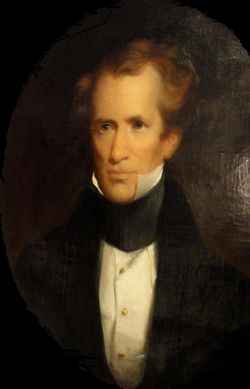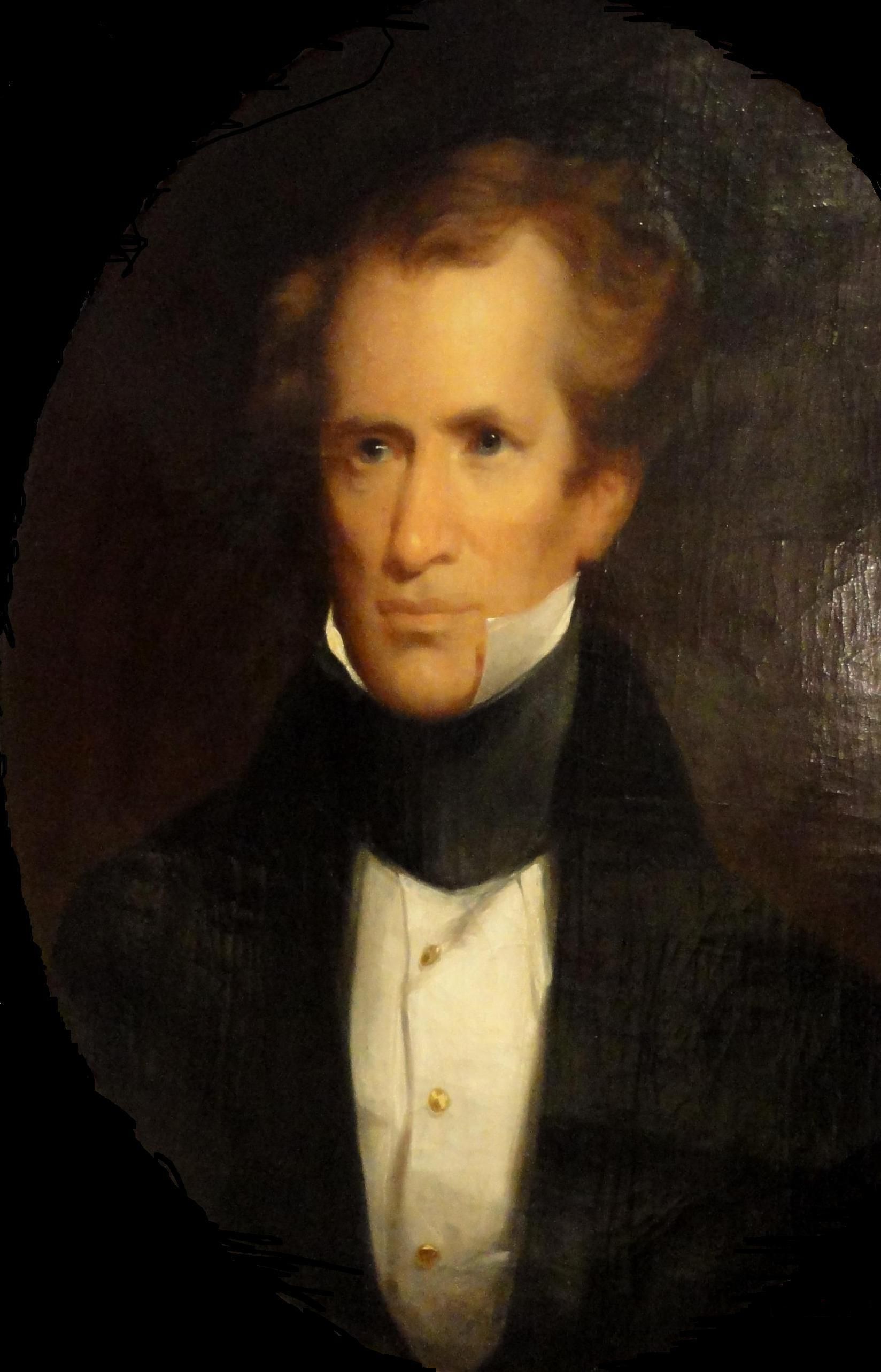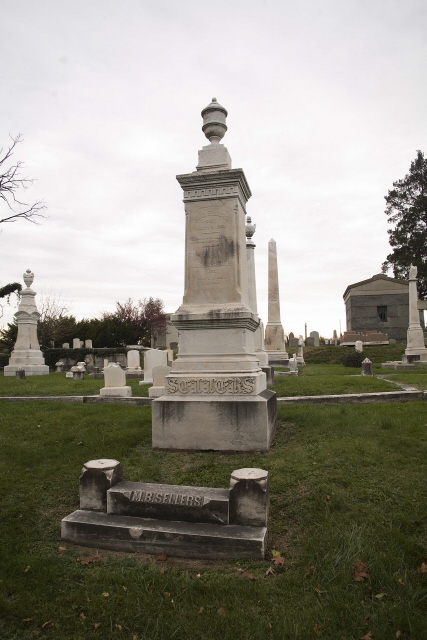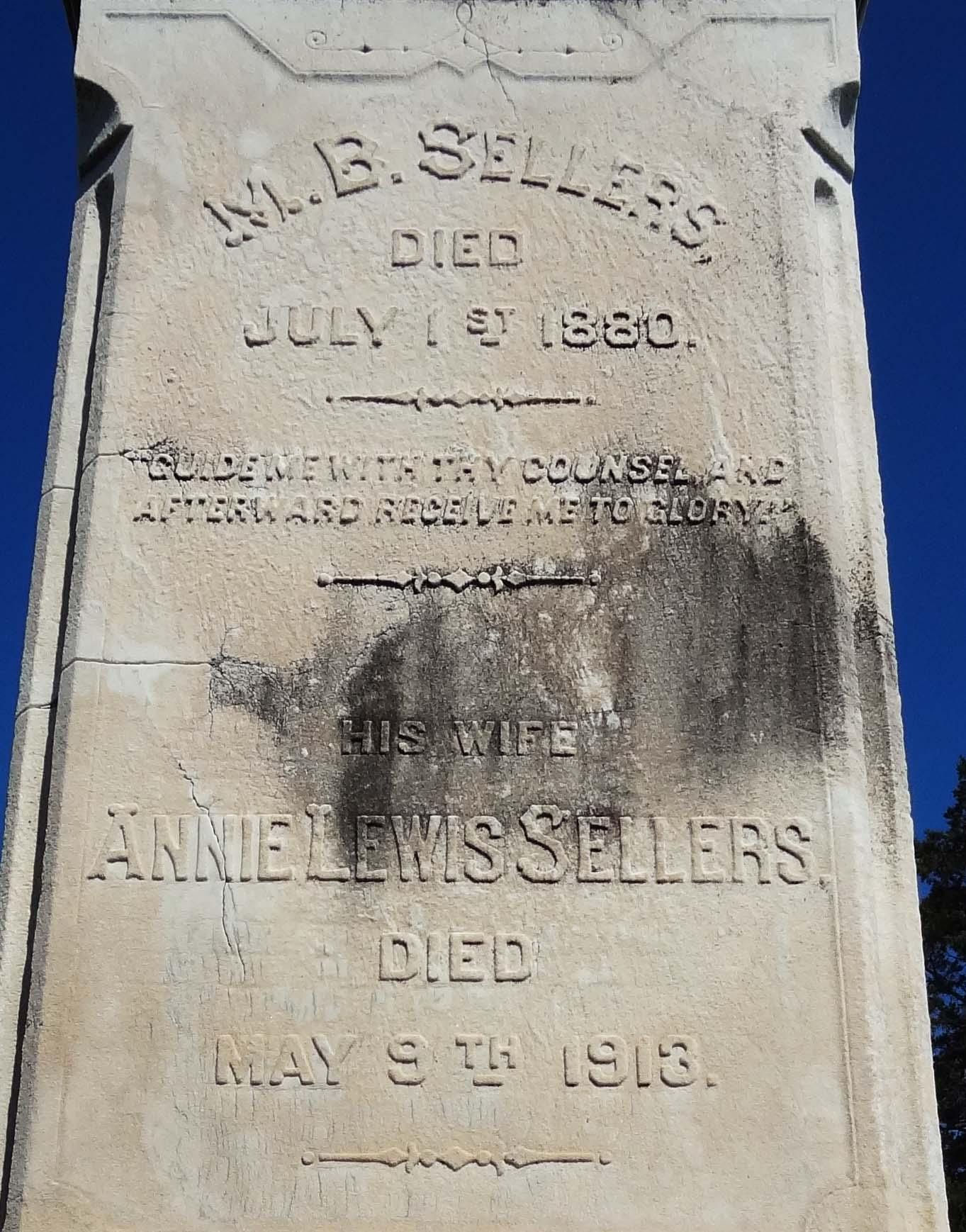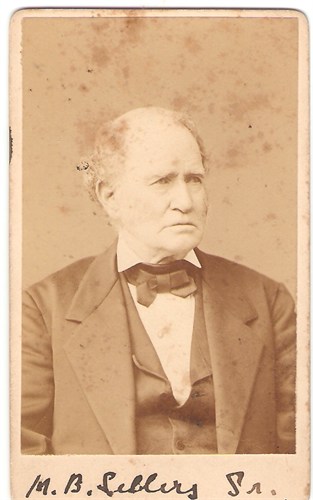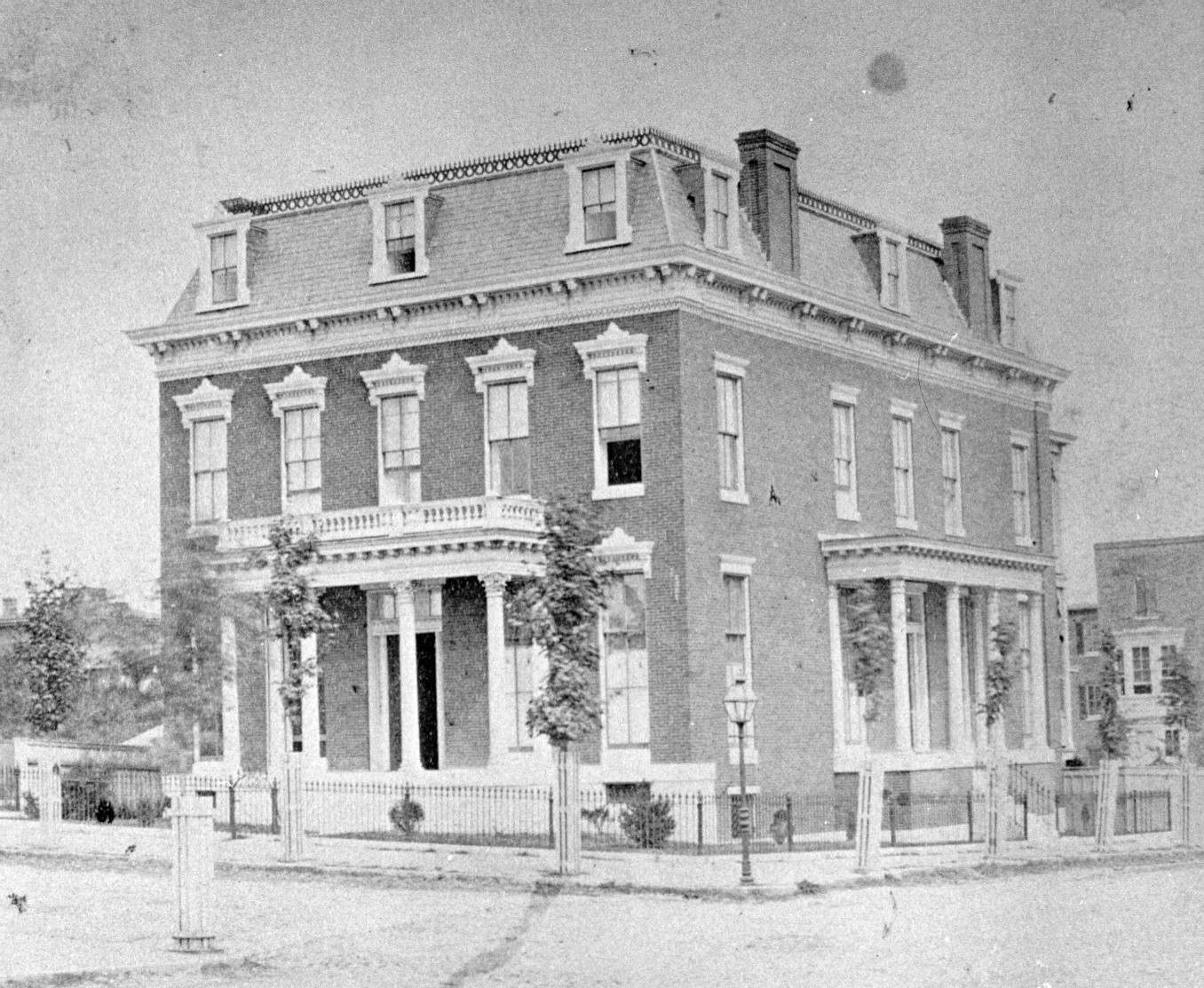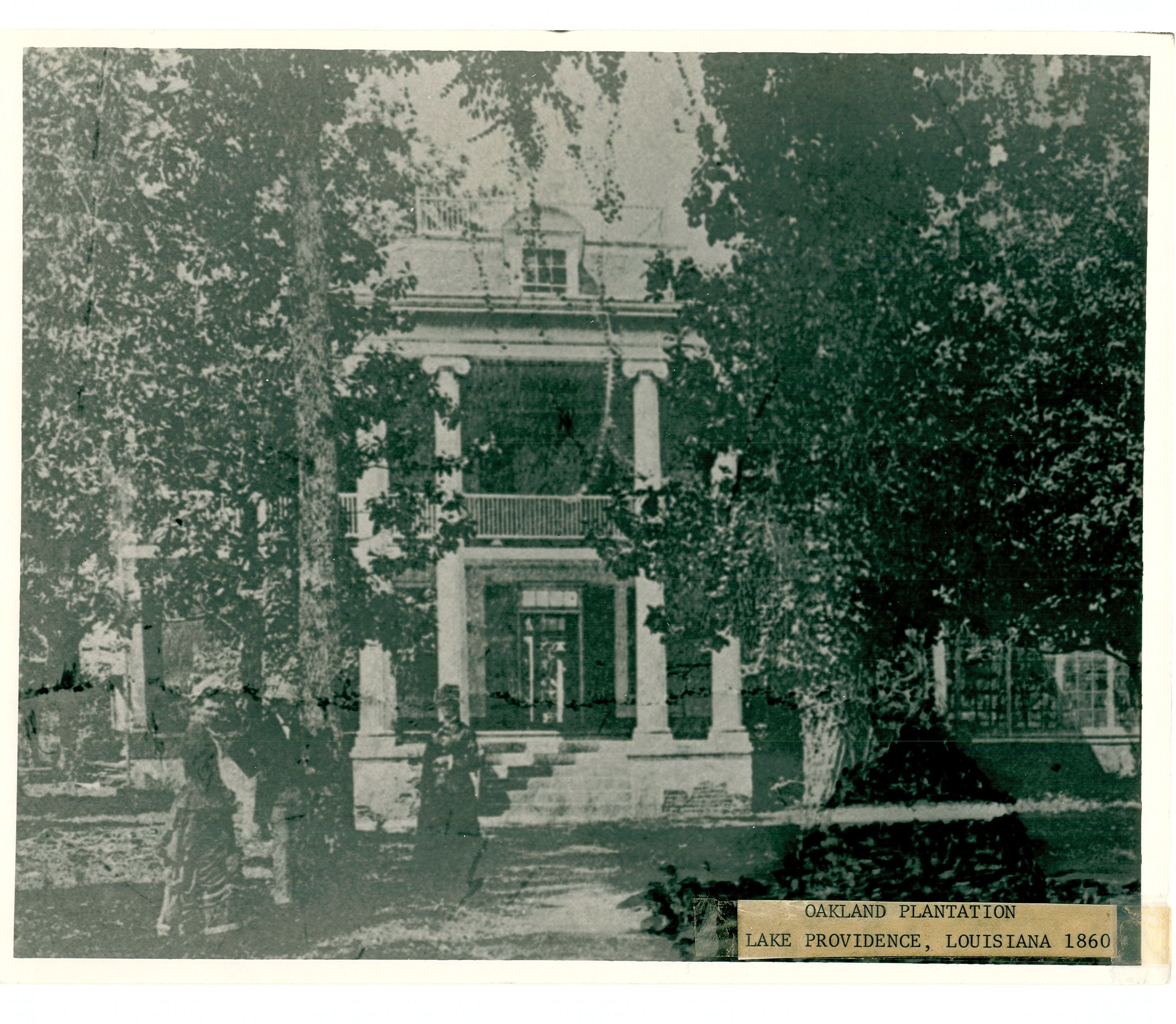In his father's will of December 20, 1807, youngest son Matthew was willed 287 acre of land and the 87 acres to be appropriated to the schooling and education of Matthew, also young bay mare, saddle and bridle, four cows, feather bed and furniture, and my books. Ben and all the young slaves to be equally divided between his mother and the children.
After his father's death in 1807, the family sold lands and moved to new territory in Warren County, Mississippi right after the New Madrid earthquake, and Matthew then moved across the Mississippi River to Louisiana, another new territory at the time. While in his 20's, he purchased lands in Lake Providence, and bought the Oakland Plantation at Lake Providence in 1831.
Matthew Bacon Sellers I went to Tennessee to be educated for several years then to Virginia to finalize his education. He had travelled to Alabama and studied and practiced medicine for several years with Dr. Chambers, a celebrated physician and surgeon. He also studied and practiced medicine with Dr. Dudly of Kentucky, and he attended lectures in Philadelphia. He also studied law, as he was possessed of ample means and had inherited and purchased a number of slaves. He was determined to be a planter.
He was so popular in his state that it was said that he could have been elected to any office. He was a member of the legislature that revised the constitution of the state, Colonel of the State Militia, and for some time Judge. He was an old line Whig and did not favor succession, but made speeches against it and tried to convince the people that it would destroy the south.
Married Wife #1, Elizabeth Cash on August 28, 1829 at the St. George’s Chapel formerly located at the corner of Cliff and Beekman Streets in New York City, New York by Rev. James Milnor. He must have met Elizabeth in 1829 while he was attending lectures in Philadelphia.
On February 5, 1863, General Grant inspected the work at Lake Providence. While there, he stayed at Arlington, plantation home of General Edward Sparrow. Grant ordered General James B. McPherson, with the remainder of the Seventeenth Army Corp to come downriver from Memphis immediately and begin the work. McPherson was highly qualified for the task. He had been top of the West Point class of 1853, had extensive experience in engineering projects, and had returned to the Academy to teach engineering. McPherson was youthful, handsome, smart, pleasant, highly competent, and was on a rocket like rise up through the ranks after starting out as Grant's engineering officer. At the time of the battle of Shiloh, MacPherson had only been a lieutenant colonel.
McPherson arrived in Providence on February 24, with General John L. Logan’s Third Division, General John McArthur’s Sixth Division, and Bissell’s Engineering Brigade. Federal troop strength in the town numbered twenty thousand. General McPherson established his headquarters on Oakland Plantation, in the deserted home of Dr. Matthew B. Sellers. Charles H. Goffe, who visited the town early in March, 1863, as a newspaper correspondent, described the area behind the town and along the lake as a … great white city of canvas, with streets and avenues, as far as the eye could see.”
During the preparation for the Battle of Vicksburg across the Mississippi River, on February 24, 1863, Dr. Alfred Brundage of the Thirty-second Ohio Regiment, wrote his wife, “We are encamped on the bank of Lake Providence, three miles from the river, in a rich old planter’s mansion, which is really the most delightful location I ever saw. I have my tent pitched in his yard in the finest arranged grove I ever beheld. We will undoubtedly be here for a month at least, as the work on the canal progresses very slowly, and I should not be surprised if it was yet entirely abandoned. I would much rather be here than in Memphis and don’t care if they keep us here til the war is over.”
For safe passage from Oakland plantation and Lake Providence during the Union Army's occupation, in 1864 Matthew and Elizabeth carried with then fully signed Oaths of Allegiance to the North Notes or passes authorizing them to vacate Oakland Plantation and Lake Providence safely and take the steamboat north to Philadelphia. The loyalist statements prepared by the Union Army and signed by Matthew and Elizabeth in 1864 to allow them free unmolested departure from lake Providence describe Elizabeth Cash Sellers as being 52 years old, 5 foot-2 with black hair and black eyes, and a native of Philadelphia. Matthew Sellers was described as being 64 years old, 5 foot-7 with gray hair and gray eyes, and a native of Kentucky.
On Elizabeth Cash’s deathbed, she begged Matthew to return to Philadelphia, which he did, selling the Oakland Plantation. While Matthew was in Philadelphia Elizabeth asked him to marry wife #2 Angelina “Annie” Leathers Lewis, 42 years younger than Matthew, who was taking care of her while on her deathbed. Annie Lewis was assisting her brother, Dr. Hiram Leathers Lewis, a doctor, both from Covington, Kentucky and working in Philadelphia (yellow fever and cholera epidemic). Matthew’s wife Elizabeth Cash died in Philadelphia on January 28, 1867. Matthew married Annie Leathers Lewis in 1868 in Covington, Kentucky. Matthew sold the plantation in 1868 while living in Baltimore, as General Edward Sparrow, of the Arlington Plantation oversaw the sale of the Oakland plantation and to collect the proceeds in gold. Matthew's family being Episcopal and Annie Lewis's family being Baptists'. In 1868, he built a mansion overlooking Baltimore to accommodate the family to be born there. His first child Matthew II was born in 1869, when he was 69 years old, and the last child Annabel was born in 1879 when he was 79 years old. He died a year later in 1880. Prior, in his will his slaves would be freed and $40,000 would be split amongst his slaves.
Providence, Sept. 7, 1867
Dear Old Master,
I received your kind letter of June 1st, and was very glad to hear from you and to know that you still think of your old servants so kindly. All your old people on the place were glad to hear and know what you said in your letter.
My family are all alive and well. There are yet on the place Little Bill and his family-Matt and family-Helen and family-Milly and family-Dorinda and all her family that are living and Annie. We as named are working together-the worms started in pretty reverend but they webbed up and have up the time done very little harm. I do not expect they will hurt us much now, and we think our squad will make 100 bales.
Louisi died about 2 weeks ago. Died of fever. Did not get the attention like old times, I think.
Your cane, I asked Louisi about. She did not know anything of it but inquired about to find that Mr. Burbank had it. Mr. Avery told me that he had heard from you that Mr. B would return it to you. I think it likely that you have it by this time.
All your old servants will be very glad to see you when you come in November. We want to see you and talk to you. We feel thankful that you are so kind as to remember us in your prayers to God and we remember you also.
I am making a good crop and would like you to be here to see that I get it sold right. You are the only one I have much depended in about it, and I know you is good about it.
All the old servants have asked me to send their love to you. When I get Mr. Bernard to write for me so I do send theirs and mine too in this letter.
We all hope that you always think well of us and we will all try, think to be good so that you will have no cause to complain of us.
I do not know anything about voting and do not know whether I will vote or not. I think that black people generally will vote.
I am respectfully your old servant,
Lewis Bernarde
The family is all at rest together at the cemetery in Baltimore, with exception to his son Matthew II.
In his father's will of December 20, 1807, youngest son Matthew was willed 287 acre of land and the 87 acres to be appropriated to the schooling and education of Matthew, also young bay mare, saddle and bridle, four cows, feather bed and furniture, and my books. Ben and all the young slaves to be equally divided between his mother and the children.
After his father's death in 1807, the family sold lands and moved to new territory in Warren County, Mississippi right after the New Madrid earthquake, and Matthew then moved across the Mississippi River to Louisiana, another new territory at the time. While in his 20's, he purchased lands in Lake Providence, and bought the Oakland Plantation at Lake Providence in 1831.
Matthew Bacon Sellers I went to Tennessee to be educated for several years then to Virginia to finalize his education. He had travelled to Alabama and studied and practiced medicine for several years with Dr. Chambers, a celebrated physician and surgeon. He also studied and practiced medicine with Dr. Dudly of Kentucky, and he attended lectures in Philadelphia. He also studied law, as he was possessed of ample means and had inherited and purchased a number of slaves. He was determined to be a planter.
He was so popular in his state that it was said that he could have been elected to any office. He was a member of the legislature that revised the constitution of the state, Colonel of the State Militia, and for some time Judge. He was an old line Whig and did not favor succession, but made speeches against it and tried to convince the people that it would destroy the south.
Married Wife #1, Elizabeth Cash on August 28, 1829 at the St. George’s Chapel formerly located at the corner of Cliff and Beekman Streets in New York City, New York by Rev. James Milnor. He must have met Elizabeth in 1829 while he was attending lectures in Philadelphia.
On February 5, 1863, General Grant inspected the work at Lake Providence. While there, he stayed at Arlington, plantation home of General Edward Sparrow. Grant ordered General James B. McPherson, with the remainder of the Seventeenth Army Corp to come downriver from Memphis immediately and begin the work. McPherson was highly qualified for the task. He had been top of the West Point class of 1853, had extensive experience in engineering projects, and had returned to the Academy to teach engineering. McPherson was youthful, handsome, smart, pleasant, highly competent, and was on a rocket like rise up through the ranks after starting out as Grant's engineering officer. At the time of the battle of Shiloh, MacPherson had only been a lieutenant colonel.
McPherson arrived in Providence on February 24, with General John L. Logan’s Third Division, General John McArthur’s Sixth Division, and Bissell’s Engineering Brigade. Federal troop strength in the town numbered twenty thousand. General McPherson established his headquarters on Oakland Plantation, in the deserted home of Dr. Matthew B. Sellers. Charles H. Goffe, who visited the town early in March, 1863, as a newspaper correspondent, described the area behind the town and along the lake as a … great white city of canvas, with streets and avenues, as far as the eye could see.”
During the preparation for the Battle of Vicksburg across the Mississippi River, on February 24, 1863, Dr. Alfred Brundage of the Thirty-second Ohio Regiment, wrote his wife, “We are encamped on the bank of Lake Providence, three miles from the river, in a rich old planter’s mansion, which is really the most delightful location I ever saw. I have my tent pitched in his yard in the finest arranged grove I ever beheld. We will undoubtedly be here for a month at least, as the work on the canal progresses very slowly, and I should not be surprised if it was yet entirely abandoned. I would much rather be here than in Memphis and don’t care if they keep us here til the war is over.”
For safe passage from Oakland plantation and Lake Providence during the Union Army's occupation, in 1864 Matthew and Elizabeth carried with then fully signed Oaths of Allegiance to the North Notes or passes authorizing them to vacate Oakland Plantation and Lake Providence safely and take the steamboat north to Philadelphia. The loyalist statements prepared by the Union Army and signed by Matthew and Elizabeth in 1864 to allow them free unmolested departure from lake Providence describe Elizabeth Cash Sellers as being 52 years old, 5 foot-2 with black hair and black eyes, and a native of Philadelphia. Matthew Sellers was described as being 64 years old, 5 foot-7 with gray hair and gray eyes, and a native of Kentucky.
On Elizabeth Cash’s deathbed, she begged Matthew to return to Philadelphia, which he did, selling the Oakland Plantation. While Matthew was in Philadelphia Elizabeth asked him to marry wife #2 Angelina “Annie” Leathers Lewis, 42 years younger than Matthew, who was taking care of her while on her deathbed. Annie Lewis was assisting her brother, Dr. Hiram Leathers Lewis, a doctor, both from Covington, Kentucky and working in Philadelphia (yellow fever and cholera epidemic). Matthew’s wife Elizabeth Cash died in Philadelphia on January 28, 1867. Matthew married Annie Leathers Lewis in 1868 in Covington, Kentucky. Matthew sold the plantation in 1868 while living in Baltimore, as General Edward Sparrow, of the Arlington Plantation oversaw the sale of the Oakland plantation and to collect the proceeds in gold. Matthew's family being Episcopal and Annie Lewis's family being Baptists'. In 1868, he built a mansion overlooking Baltimore to accommodate the family to be born there. His first child Matthew II was born in 1869, when he was 69 years old, and the last child Annabel was born in 1879 when he was 79 years old. He died a year later in 1880. Prior, in his will his slaves would be freed and $40,000 would be split amongst his slaves.
Providence, Sept. 7, 1867
Dear Old Master,
I received your kind letter of June 1st, and was very glad to hear from you and to know that you still think of your old servants so kindly. All your old people on the place were glad to hear and know what you said in your letter.
My family are all alive and well. There are yet on the place Little Bill and his family-Matt and family-Helen and family-Milly and family-Dorinda and all her family that are living and Annie. We as named are working together-the worms started in pretty reverend but they webbed up and have up the time done very little harm. I do not expect they will hurt us much now, and we think our squad will make 100 bales.
Louisi died about 2 weeks ago. Died of fever. Did not get the attention like old times, I think.
Your cane, I asked Louisi about. She did not know anything of it but inquired about to find that Mr. Burbank had it. Mr. Avery told me that he had heard from you that Mr. B would return it to you. I think it likely that you have it by this time.
All your old servants will be very glad to see you when you come in November. We want to see you and talk to you. We feel thankful that you are so kind as to remember us in your prayers to God and we remember you also.
I am making a good crop and would like you to be here to see that I get it sold right. You are the only one I have much depended in about it, and I know you is good about it.
All the old servants have asked me to send their love to you. When I get Mr. Bernard to write for me so I do send theirs and mine too in this letter.
We all hope that you always think well of us and we will all try, think to be good so that you will have no cause to complain of us.
I do not know anything about voting and do not know whether I will vote or not. I think that black people generally will vote.
I am respectfully your old servant,
Lewis Bernarde
The family is all at rest together at the cemetery in Baltimore, with exception to his son Matthew II.
Inscription
"Guide me with thy counsel and afterward receive me to glory"
Family Members
Advertisement
Advertisement
